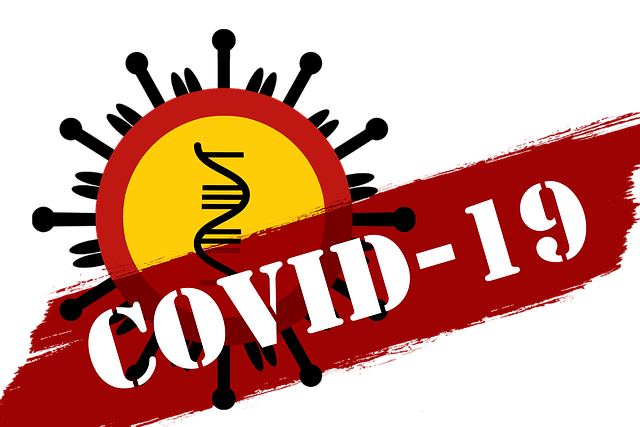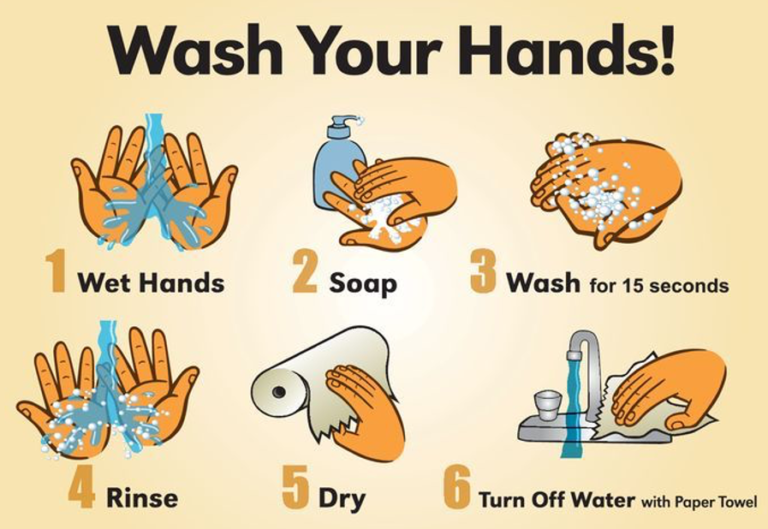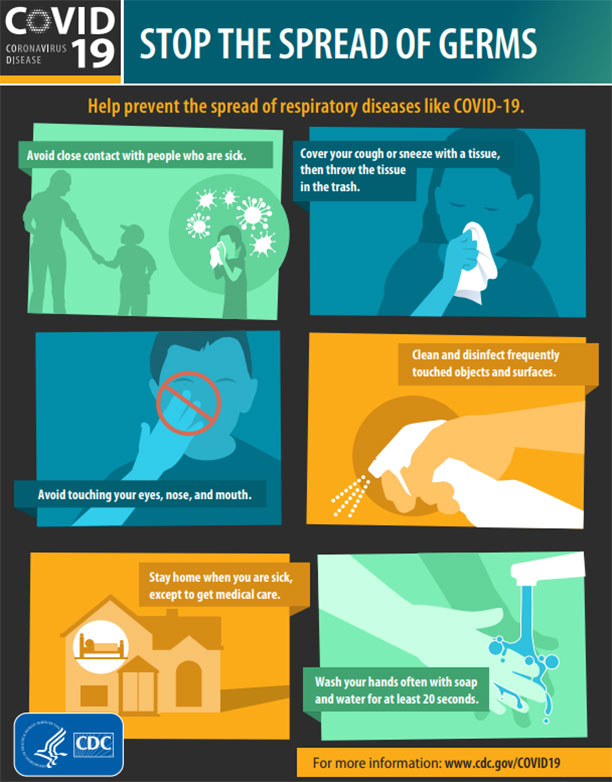This article originally appeared on the NHCOA blog. Para leer en español, haga clic aquí.

The National Hispanic Council on Aging (NHCOA) is committed to keeping our communities up to date on the latest information about the current outbreak of coronavirus, or COVID-19. We share this information to help you stay safe and support others.
What is Coronavirus?
Coronaviruses are a group of viruses that can cause a range of symptoms including a runny nose, cough, sore throat and fever. Some are mild (like the common cold), others lead to pneumonia.
The virus we are concerned about is called COVID-19 (coronavirus disease 2019). It is not clear how easily it spreads from person to person. The CDC recommends that anyone who may have been exposed to the illness monitor themselves for 14 days after close contact with an infected person.
Symptoms to watch for include:
- fever,
- cough,
- shortness of breath,
- trouble breathing,
- body aches,
- sore throat, or
- vomiting and diarrhea.
How is the coronavirus spread?
Researchers are still learning exactly how the new virus spreads from person to person.
Coronaviruses in general are spread through close contact — a range of about 3 to 6 feet. It is believed that the virus is spread by droplets (a sick person coughing or sneezing on someone) and contaminated surfaces.
How can I prevent catching COVID-19?
One of the easiest ways to prevent catching the coronavirus is proper handwashing.
The CDC recommends washing hands with soap and water before eating, after using the bathroom, after blowing your nose, coughing or sneezing, and before and after caring for a sick friend or a family member.
The most effective way to clean hands is to wet them with clean water, then apply soap and scrub for at least 20 seconds, before rinsing and drying with a clean towel.


Is there a coronavirus treatment?
No. There is no treatment for the coronavirus. If infected with the COVID-19, patients are provided with supportive care – for example, assistance with breathing.
Am I at risk of catching COVID-19?
According to the CDC, for most Americans, the immediate health risk from COVID-19 is considered low. In communities where COVID-19 has been reported, there is an elevated risk, however the risk of exposure is still considered relatively low.
On February 17, 2020, the Director-General of the WHO presented at a media briefing the following updates on how often the symptoms of COVID-19 are severe or fatal, using data from 44,000 people with a confirmed diagnosis:

 The Director-General also noted that the risk of serious complications increases with age.
The Director-General also noted that the risk of serious complications increases with age.
How to keep yourself safe?
As of 9:39 AM on Friday, March 6, 2020, the current death toll in the United States from COVID-19 is 14, and there are more than 225 confirmed cases across the country.
To keep yourself safe, follow these precautions:
- Do NOT touch your face (especially eyes, nose and mouth)! If you must, wash your hands with soap and water (up to your elbows).
- Do not share food, utensils, cups or towels
- Stay home when sick
- If you have a fever, cough and difficulty breathing, seek medical attention, but call before going to doctor
- Cover coughs and sneezes
- Frequently clean touched surfaces
- Wash your hands frequently with soap!
- Maintain social distancing (avoid large crowds when possible)


NHCOA’s hearts are with all those affected by the virus.
Additional Resources:
https://www.who.int/emergencies/diseases/novel-coronavirus-2019/advice-for-public
https://www.cdc.gov/coronavirus/2019-ncov/about/index.html
https://www.cdc.gov/coronavirus/2019-ncov/downloads/2019-ncov-factsheet.pdf
The opinions expressed in this article are those of the author and do not necessarily reflect those of the Diverse Elders Coalition.
